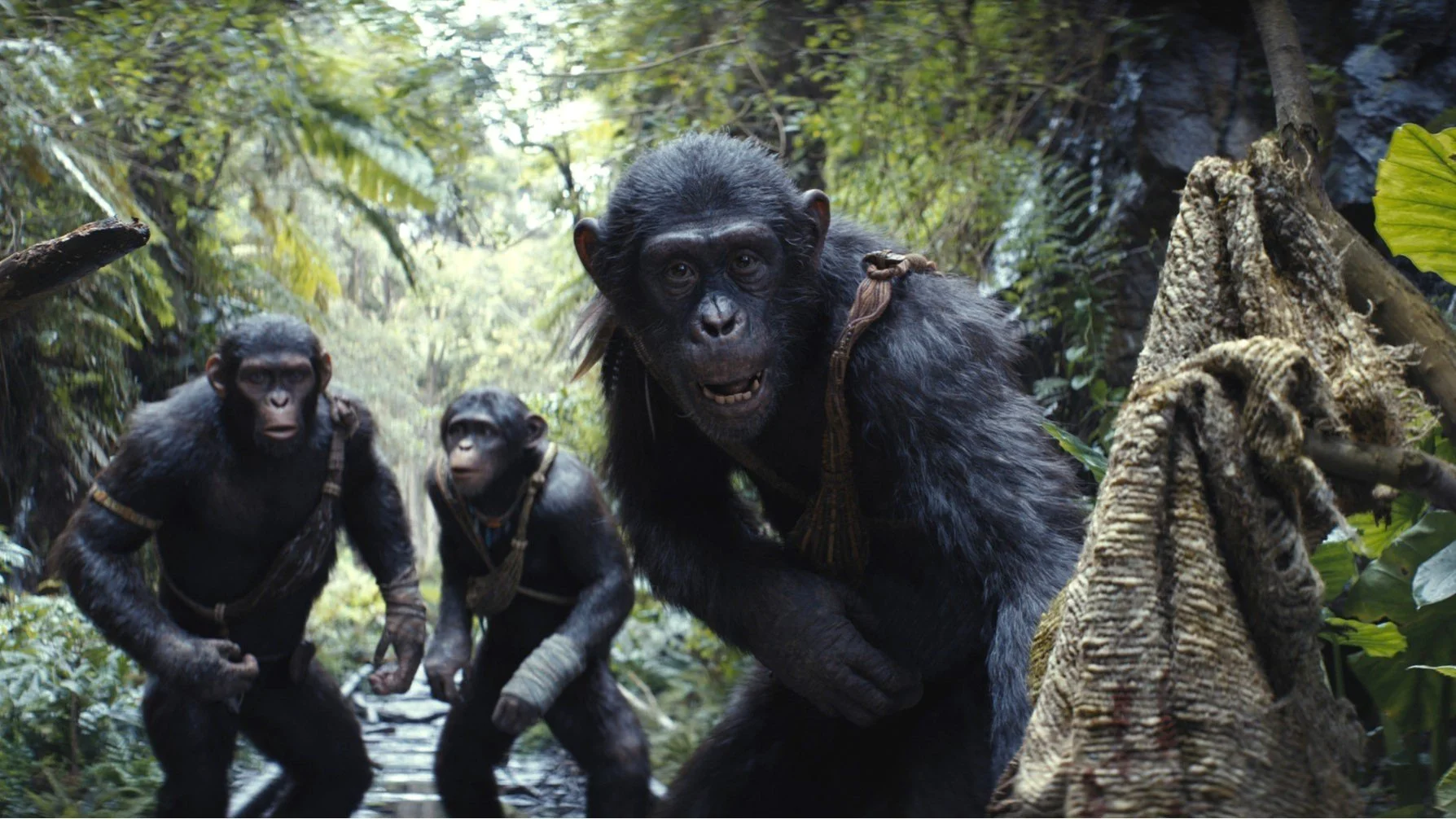Kingdom of the Planet of the Apes
The tenth chapter in the simian franchise is as morally provocative, multi-layered and thrilling as any in the series.
Humanity’s unrelenting abuse of nature was bound to have its consequences. But the unforeseen direction explored in Rise of the Planet of the Apes (2011) took the simian franchise down a whole new path, a narrative spine elaborated on in Dawn of the Planet of the Apes (2014) and War for the Planet of the Apes (2017). Unusually for a cinematic brand, as the computer-generated imagery improved exponentially, so have the ideas surrounding it. The nascent dabbling in genetic engineering and human-chimpanzee interaction (cf. James Marsh’s astonishing documentary Project Nim), made the reboot an entirely more viable and feasible option.
With Kingdom of the Planet of the Apes, the concept is given new wings, introducing unexpected elements. Set several generations after the events of the last film, it sees Caesar – the series’ chimpanzee protagonist – elevated to the position of a messiah of sorts, his influence and morality exploited by different factions. Herein lies a Biblical theme, as worship, megalomania, distrust and fear continue long after the genocide of mankind. To accentuate the premise, John Paesano’s commanding score introduces elements of Miklós Rózsa, Alex North and their ilk, using the tuba and flute to set the sonic scene. Beyond this are the highly pressing notions of environmental balance and the extermination of indigenous peoples – and even slavery, recalling the kingdom of the pharaohs. Meanwhile, man himself has become myth, his record suggesting such absurdities as his ability to communicate across oceans and to master the skies.
Every element of Wes Ball’s film, from the performance-capture and consummate vocal work to Daniel T. Dorrance’s awe-inspiring production design (where nature and ancient architecture meet to create a whole new world), feeds the emotional trajectory of the narrative. Even as European nations once laid waste the New World, the Dakota still persecuted the Osage. Here, there are good apes and bad apes, as well as other creatures of the forest that prove symbiotic. Josh Friedman’s screenplay also supplies plenty of incidental humour. Consequently, one can be laughing one minute and then be choked up the next. This is a morality fable of Biblical proportions, where no detail is too insignificant to build up a plausible whole. At the beginning, when a leaf lands on an ape’s nose and he snorts it away, we feel that what we are witnessing is entirely real.
Not only will you believe that an ape can scream (and, of course, talk), but can utilise the gifts of elementary tools, fire and horse travel. If you are willing to buy into the concept of the franchise (which has been made far more viable since 2011), Kingdom has enough moral intelligence, heart, nuance and artistry to have audiences baying for an eleventh edition.
JAMES CAMERON-WILSON
Cast: Owen Teague, Freya Allan, Kevin Durand, Peter Macon, William H. Macy, Eka Darville, Travis Jeffery, Lydia Peckham, Neil Sandilands, Sara Wiseman.
Dir Wes Ball, Pro Wes Ball, Joe Hartwick Jr, Rick Jaffa, Amanda Silver and Jason T. Reed, Screenplay Josh Friedman, Ph Gyula Pados, Pro Des Daniel T. Dorrance, Ed Dan Zimmerman, Music John Paesano, Costumes Mayes C. Rubeo, Sound Ai-Ling Lee, Matthew Thomas Hall and Tobias Poppe.
Oddball Entertainment/Jason T. Reed Productions-20th Century Studios.
144 mins. USA. 2024. UK Rel: 9 May 2024. US Rel: 10 May 2024. Cert. 12A.


